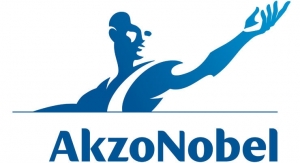01.20.17
The U.S. Environmental Protection Agency (EPA) has proposed placing limits on the use of two chemicals in paint removers: methylene chloride and N-methylpyrrolidone (NMP). In a proposed rule published on Jan. 12, EPA proposed the limits under the amended Toxic Substances Act (TSCA), which mandates the agency to restrict chemicals already in commerce that pose unreasonable risks to public health and the environment.
In a 2014 assessment, EPA concluded that methylene chloride can cause a range of adverse health effects, including harm to the central nervous system, liver toxicity, and cancer. EPA is now proposing to prohibit manufacture (including import), processing, and distribution in commerce of methylene chloride when used as a paint remover, except for commercial furniture refinishing, which the agency will address in a separate proposal. EPA is also proposing to require manufacturers, processors, and distributors to notify retailers and others in their supply chains of the prohibitions. EPA is not proposing to regulate methylene chloride in commercial furniture refinishing at this time, but intends to propose such a regulation at a later date, after it obtains more information on this use.
EPA assessed NMP in 2015 and identified risks to people, particularly pregnant women and women of childbearing age, who have high exposure to NMP through paint or coating removal.
EPA is inviting comments on two approaches to address the risks from NMP. One approach would prohibit manufacture (including import), processing, and distribution in commerce of NMP when used as a paint remover, as well as require various notification measures on the restrictions to downstream processors and users. The other approach would put in place a combination of requirements to address unreasonable risks, including limiting the amount of NMP in paint remover products, providing warning labels for consumers, and requiring workers to wear specialized gloves and other equipment. EPA is seeking comment on both approaches. In addition, EPA is proposing to exempt certain national security uses of methylene chloride and NMP from the requirements of this rule.
In a 2014 assessment, EPA concluded that methylene chloride can cause a range of adverse health effects, including harm to the central nervous system, liver toxicity, and cancer. EPA is now proposing to prohibit manufacture (including import), processing, and distribution in commerce of methylene chloride when used as a paint remover, except for commercial furniture refinishing, which the agency will address in a separate proposal. EPA is also proposing to require manufacturers, processors, and distributors to notify retailers and others in their supply chains of the prohibitions. EPA is not proposing to regulate methylene chloride in commercial furniture refinishing at this time, but intends to propose such a regulation at a later date, after it obtains more information on this use.
EPA assessed NMP in 2015 and identified risks to people, particularly pregnant women and women of childbearing age, who have high exposure to NMP through paint or coating removal.
EPA is inviting comments on two approaches to address the risks from NMP. One approach would prohibit manufacture (including import), processing, and distribution in commerce of NMP when used as a paint remover, as well as require various notification measures on the restrictions to downstream processors and users. The other approach would put in place a combination of requirements to address unreasonable risks, including limiting the amount of NMP in paint remover products, providing warning labels for consumers, and requiring workers to wear specialized gloves and other equipment. EPA is seeking comment on both approaches. In addition, EPA is proposing to exempt certain national security uses of methylene chloride and NMP from the requirements of this rule.





